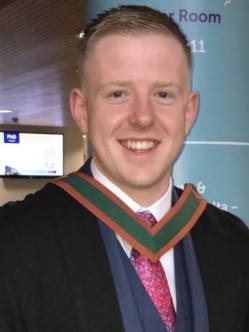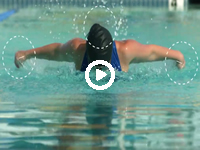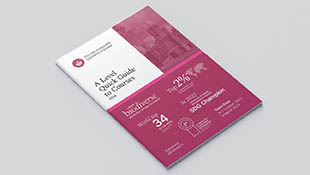-
Courses

Courses
Choosing a course is one of the most important decisions you'll ever make! View our courses and see what our students and lecturers have to say about the courses you are interested in at the links below.
-
University Life

University Life
Each year more than 4,000 choose University of Galway as their University of choice. Find out what life at University of Galway is all about here.
-
About University of Galway

About University of Galway
Since 1845, University of Galway has been sharing the highest quality teaching and research with Ireland and the world. Find out what makes our University so special – from our distinguished history to the latest news and campus developments.
-
Colleges & Schools

Colleges & Schools
University of Galway has earned international recognition as a research-led university with a commitment to top quality teaching across a range of key areas of expertise.
-
Research & Innovation

Research & Innovation
University of Galway’s vibrant research community take on some of the most pressing challenges of our times.
-
Business & Industry

Guiding Breakthrough Research at University of Galway
We explore and facilitate commercial opportunities for the research community at University of Galway, as well as facilitating industry partnership.
-
Alumni & Friends

Alumni & Friends
There are 128,000 University of Galway alumni worldwide. Stay connected to your alumni community! Join our social networks and update your details online.
-
Community Engagement

Community Engagement
At University of Galway, we believe that the best learning takes place when you apply what you learn in a real world context. That's why many of our courses include work placements or community projects.
Bachelor of Engineering (Biomedical)
Course Overview
Biomedical Engineering is a relatively new branch of engineering that involves the use of cutting-edge technologies to help improve human healthcare. Biomedical engineers are involved in the design and creation of medical devices, implants such as stents, instruments and materials for clinical use. They also apply their engineering skills to problems in human biology and are at the forefront of developments in human medicine in the 21st century, enabling the medicial profession to diagnose and treat disease, and repair or replace damaged living tissue.
This degree programme was developed as a result of the need within the biomedical industry for highly skilled personnel. Locally based biomedical companies, of which there is a significant cluster, were involved in its design. It therefore remains highly relevant to the needs of industry while giving students a full training in engineering design principles and their application to human biology in an interdisciplinary environment. Related, relevant subjects that are covered over the course of the degree programme include biomedical instrumentation, tissue engineering and biomechanics.
If you want an interesting career that involves the application of engineering principles to medicine and biology, this may suit you. Biomedical engineers assist clinicians to analyse and solve problems in biology and medicine, therby helping to sustain or improve life. Both traditional and modern engineering principles and new technology are used. Biomedical engineers are also challenged to ensure that advances in technology keep pace with the advances in medicine and that the diagnostic, life-support or life-enhancing tools they create remain compatible with the human body.
Integrated Masters (ME) and Work placement
All students registering for an engineering degree at NUI Galway will be enrolled on an integrated five year programme; a Bachelor of Engineering (BE) (four years, Level 8) + a Master of Engineering (ME) (one year, Level 9). Upon successful completion of the five years of study, graduates will have the educational qualifications required for progression to Chartered Engineer.Students registering for an engineering degree at NUI Galway in 2019 will make a decision at the beginning of 3rd Year to either remain on the BE+ME pathway (five years) or exit with a BE (four years). Students on the BE+ME pathway will avail of advanced engineering modules, a substantial research and development project, and a work placement of eight months duration during the 4th Year. For students exiting with a BE, the work placement will be of four months duration after 3rd Year. Read more about Engineering work placements.
Accreditation
All Engineering Degrees at NUI Galway are professionally accredited by the statutory professional body, Engineers Ireland. This “Accreditation” means that the degree has been assessed and approved to meet the educational requirements for professional Engineers.
- Under an international agreement (Washingon Accord), any Degree accredited by the National professional body (Engineers Ireland) is recognized internationally. So having an “Accredited” degree means that employers outside of Ireland can (1) understand the quality/education achieved by a graduate and (2) know that it is equivalent to their own Education system/standards, and (3) can offer appropriate employment on this basis. For example, certain functions (sign off on large civil engineering construction projects) can only be carried out by a chartered engineer.
- Engineers Ireland changed the criteria for Accreditation in 2012, and now require a Masters (Level 9) qualification as the education standard required for Registered Professional Titles of Chartered Engineer* (prior to this, a Level 8 degree was required). The changes were implemented because the standard European engineering qualification (degree or diplome) is at level 9, and European industry maintains a strict differentiation between those engineers qualified at level 9 and those qualified at level 8. Any graduate interested in working in Europe/Worldwide is now strongly advised to get an accredited level 9 award.
- Engineers Ireland accreditation can be obtained at the following levels:
- Level 8: 4-year honours degree – associate engineer
- Level 9: 5-year masters degree – chartered engineer
*A Chartered Engineer is the highest professional education standard in Engineering. A chartered Engineer is competent (because of their education and training) to assume personal responsibility for the development and application ofengineering in research, design, construction, manufacturing, superintending, managing and in the education of the engineer. His/her work is predominantly intellectual and varied and not of a routine mental or physical character. It requires the exercise of original thought and judgement and the ability to supervise the technical and administrative work of others.
Applications and Selections
Who Teaches this Course
Requirements and Assessment
Key Facts
Entry Requirements
Minimum Grade H5 in two subjects and passes in four other subjects at O6/H7 Level in the Leaving Certificate, including Irish, English, Mathematics, a laboratory science subject (i.e., Chemistry, Physics, Biology, Physics with Chemistry (joint), Agricultural Science or Computer Science) or Technology, and any two other subjects recognised for entry purposes.
Additional Requirements
For A-Levels - A minimum of Grade C in A-Level Mathematics is required.
Recognition of Prior Learning (RPL)
Duration
4 years
Next start date
September 2024
A Level Grades (2023)
universityofgalway.ie/alevels
Average intake
40
QQI/FET FETAC Entry Routes
Closing Date
NFQ level
Mode of study
ECTS weighting
Award
CAO
GY408
Course code
Course Outline
Year 5 optional
At the School of Engineering we are focused on ensuring that you will be educated to the highest standards, and will have the necessary qualifications to avail of all of the professional opportunities presented to you, both in Ireland and across the world. You will be enrolled on an integrated five year programme; a Bachelor of Engineering (BE) (four years, Level 8) + a Master of Engineering (ME) (one year, Level 9). Students on the BE+ME pathway will avail of advanced engineering modules, a substantial research and development project, and a work placement. Upon successful completion of the five years of study, graduates will have the educational qualifications required for progression to Chartered Engineer. Full information on the optional 5th Year is provided here
Curriculum Information
Curriculum information relates to the current academic year (in most cases).Course and module offerings and details may be subject to change.
Glossary of Terms
- Credits
- You must earn a defined number of credits (aka ECTS) to complete each year of your course. You do this by taking all of its required modules as well as the correct number of optional modules to obtain that year's total number of credits.
- Module
- An examinable portion of a subject or course, for which you attend lectures and/or tutorials and carry out assignments. E.g. Algebra and Calculus could be modules within the subject Mathematics. Each module has a unique module code eg. MA140.
- Subject
- Some courses allow you to choose subjects, where related modules are grouped together. Subjects have their own required number of credits, so you must take all that subject's required modules and may also need to obtain the remainder of the subject's total credits by choosing from its available optional modules.
- Optional
- A module you may choose to study.
- Required
- A module that you must study if you choose this course (or subject).
- Required Core Subject
- A subject you must study because it's integral to that course.
- Semester
- Most courses have 2 semesters (aka terms) per year, so a three-year course will have six semesters in total. For clarity, this page will refer to the first semester of year 2 as 'Semester 3'.
Year 1 (60 Credits)
Required EI160: Engineering Graphics - 5 Credits - Semester 1Required EI140: Fundamentals of Engineering - 10 Credits - Semester 1
Required CH140: Engineering Chemistry - 5 Credits - Semester 1
Required MP120: Engineering Mechanics - 5 Credits - Semester 1
Required MA140: Engineering Calculus - 5 Credits - Semester 1
Required CT1110: Engineering Computing I - 5 Credits - Semester 1
Required PH140: Engineering Physics - 5 Credits - Semester 2
Required CT1111: Engineering Computing II - 5 Credits - Semester 2
Required EI150: Engineering Design - 10 Credits - Semester 2
Required MM140: Engineering Mathematical Methods - 5 Credits - Semester 2
Year 2 (60 Credits)
Required ME2106: Theory of Machines and CADD - 5 Credits - Semester 3Required ME2105: Manufacturing Technology and CAIRDE - 5 Credits - Semester 3
Required CE227: Strength of Materials - 10 Credits - Semester 3
Required AN230: Human Body Structure - 5 Credits - Semester 3
Required ME223: Thermodynamics and Fluid Mechanics - 5 Credits - Semester 3
Required EE231: Electronic Instrumentation and Sensors - 5 Credits - Semester 3
Required ST1100: Engineering Statistics - 5 Credits - Semester 3
Required MA2101: Mathematics and Applied Mathematics I - 5 Credits - Semester 3
Required BME200: Introduction to Biomaterials - 5 Credits - Semester 4
Required BME2100: Materials I - 5 Credits - Semester 4
Required MA2102: Mathematics and Applied Mathematics II - 5 Credits - Semester 4
Year 3 (60 Credits)
Required BME328: Principles of Biomaterials - 5 Credits - Semester 5Required BME3132: Finite Element Methods in Engineering I - 5 Credits - Semester 5
Required BME3134: Biomedical Engineering Design I - 5 Credits - Semester 5
Required ME322: Thermodynamics and Heat Transfer - 5 Credits - Semester 5
Required ME301: Fluid Dynamics - 5 Credits - Semester 5
Required ME304: Mechanical Analysis And Design - 5 Credits - Semester 5
Required BME3135: Biomedical Engineering Design II - 5 Credits - Semester 6
Required ME353: Quality Systems - 5 Credits - Semester 6
Required BME3133: Biomedical Engineering Physiology - 5 Credits - Semester 6
Required BME4101: Biotransport - 5 Credits - Semester 6
Required ME312: Automated Systems - 5 Credits - Semester 6
Required PA405: Elements Of Pathology - 5 Credits - Semester 6
Year 4 (60 Credits)
Required ME4112: Computational Fluid Dynamics - 5 Credits - Semester 7Required BME5104: Finite Element Methods in Engineering II - 5 Credits - Semester 7
Required BME4106: Biomedical Group Project - 5 Credits - Semester 7
Required ME4109: Materials II - 5 Credits - Semester 7
Required BME400: Biomechanics - 5 Credits - Semester 7
Required BME405: Tissue Engineering - 5 Credits - Semester 7
Required BME4107: Biomedical Professional Experience Programme (BE+ME) - 20 Credits - Semester 7
Required ME3102: Project Management for Engineers - 5 Credits - Semester 8
Required ME3104: Introduction to Regulatory Affairs in Manufacturing - 5 Credits - Semester 8
Further Education
Upon completion of the undergraduate degree, suitably qualified students have the option to enrol and continue their studies to Masters or PhD level.
Students can advance to Masters level (ME) through our one year taught Masters programme (September-June) that builds on the successful completion of their undergraduate programme, subject to a sufficient standard (2nd Class Honours minimum). This programme is an integrated follow-on to the BE programme and is designed to meet Engineers Ireland’s criterion for Level 9 degrees, providing graduates with a route to Chartered Engineering status that will be recognised worldwide.
Masters degree education is becoming increasingly the norm internationally in Engineering, and this programme strengthens the ability of our graduates to compete nationally and internationally at the highest level for employment in industry and other sectors of the economy.
In our PhD programme students develop highly innovative state-of the-art solutions to current problems in Biomedical Engineering, frequently leading to new medical devices or strategies for treatment of disease. Biomedical Engineering research at University of Galway involves a high level of interaction with the Hi-Tec R&D sector of the medical device industry.
Why Choose This Course?
Career Opportunities
Biomedical Engineering offers a variety of career opportunities in such areas as private industry, universities, hospitals, research facilities, education and medical institutes, in teaching and in working for government regulatory agencies. With eight of the world's top ten biomedical companies based in Ireland - many of which are in Galway - there are good prospects for employment nationally while remaining open to opportunities overseas.
Who’s Suited to This Course
Learning Outcomes
Transferable Skills Employers Value
Work Placement
Study Abroad
Related Student Organisations
Course Fees
Fees: EU
Fees: Tuition
Fees: Student Contribution
Fees: Student levy
Fees: Non EU
EU Fees are comprised of Tuition + Student Contribution Charge + Student Levy** €140. **Payable by all students and is not covered by SUSI. Further detail here.
Find out More
Aisling Rooney
Biomedical Engineering
T +353 91 492 723
F +353 91 563 991
E biomedeng@universityofgalway.ie
www.universityofgalway.ie/engineering-informatics
What Our Students Say
.jpg)
Shreyas Gujulla | Year Three, BE (Biomedical Engineering)
Personally, I enjoyed the inter-disciplinary nature of Biomedical Engineering. It provides an overlap between Science & Engineering with the inclusion of some Biology modules in the course. I have always been interested in Biology and the crafting nature of Engineering and Biomedical Engineering is one such course which makes this combination into a reality. Biomedical Engineering has several practical modules which provided me with experience in relation to designing medical devices and preparing 3D prototypes which are essential in the Biomedical industry. With the inclusion of an 8 months' work placement for integrated masters and 4 months for BE it will further provide me with hands-on experience in 3rd Year which I can’t wait to start in January.
What Employers Say

Seán Óg Ó Loideáin | Energy Systems Engineering BE & ME Graduate
The course equips you with the fundamentals of engineering whilst providing in-depth knowledge of a wide range of conventional and future energy generation technologies.























